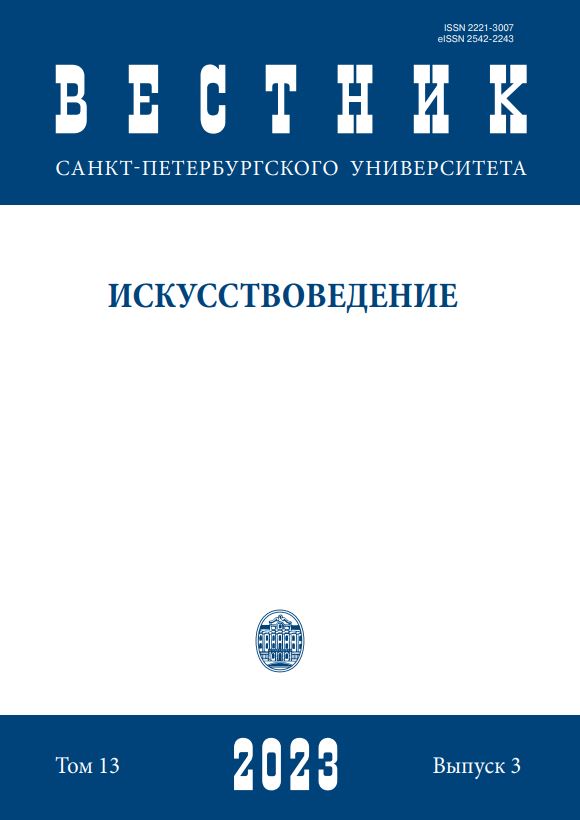The Formation of Russian Genre Cinema at the Beginning of the 21st Century
DOI:
https://doi.org/10.21638/spbu15.2023.308Abstract
The problem of genre formation in cinema constantly causes controversy and discrepancies among art historians, since this type of creativity is synthetic, using the creative possibilities of other types of art. Сommon in the definition of the term “genre” is only the provision that a genre is a way of embodying a certain concept of reality in a work, creating an artistic picture or an artistic model of the world, perceived from a certain angle, which implies a limitation in the choice of means of artistic embodiment of the theme of the work. Like any complex concept, a genre should be considered in a system of several coordinates, among which the dominant features inherent in a particular genre play the most significant role. These two dominants are: 1) the emotion that the film should evoke in the viewer (laughter, horror, sympathy, etc.); 2) the theme of the film (historical, military, sci-fi, etc.). When investigating the problem of genre formation, one should also not forget that the genre is a historical category, i. e. the specific period in which it was created plays an important role in determining the genre characteristics of a particular film. Over the past 30 years, Russian cinema has undergone significant changes in the aesthetic and ethical paradigm, including changes in the themes and genre palette of films. This article is the first attempt to analyze the process of mastering by Russian cinematography new genres for it, which were not previously in the repertoire of Russian cinema (fantasy, disaster film, horror, biopic, musical). Having considered the problem of interaction between cultural globalization and national mentality, the author comes to the conclusion that, having survived the period of imitation of foreign models, Russian genre cinema at the present stage has the opportunity to gain self-identification and become an art that is in demand by a wide audience.
Keywords:
genre, modern Russian cinema, fantasy, disaster film, fairy tale, special effects, cultural globalization
Downloads
References
Downloads
Published
How to Cite
Issue
Section
License
Articles of "Vestnik of Saint Petersburg University. Arts" are open access distributed under the terms of the License Agreement with Saint Petersburg State University, which permits to the authors unrestricted distribution and self-archiving free of charge.






